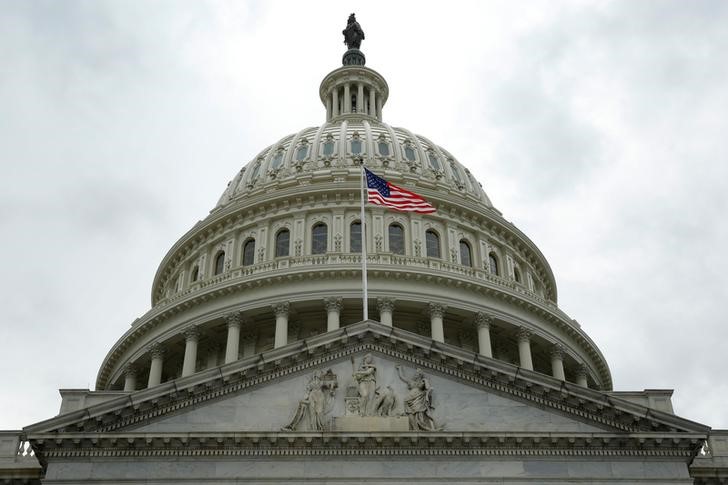CTAs keep buying Treasuries, gold longs face stop-loss risk: BofA
Investing.com - Significant and lasting reductions in U.S. government spending would likely need to originate in Congress, rather than through the Elon Musk-led Department of Government Efficiency, according to analysts at BofA.
Despite the department, known as DOGE, saying it has secured $55 billion -- or roughly 3% of the U.S. 2024 fiscal deficit -- in savings through its sweeping recent crackdown on federal expenditures, the BofA analysts said that Congress still retains the "power of the purse" in Washington.
"[A]ny savings generated by DOGE, may simply result in shifts in spending, rather than reductions unless Congress cuts appropriations to account for DOGE savings," the analysts wrote in a note to clients on Friday. "In other words, Congress is still likely to originate any significant deficit reduction."
With that in mind, the analysts recommended that investors pay close attention to the ongoing budget "reconciliation" developments laid out by Republicans in both the House of Representatives and Senate. This process would allow Senate Republicans to bypass the 60-vote threshold needed to pass bills, although the rule places limits on items like taxes and spending.
Senate Republicans have been pursuing a two-bill approach, with the first addressing immigration and defense and the second focused on tax provisions. In the early hours of Friday morning, the Senate adopted the first budget blueprint.
Republicans in the House, meanwhile, are advocating for one large bill -- a proposal that President Donald Trump has backed. Backers of this plan are reportedly worried that passing the immigration bill first would dent the chances of extending tax cuts previously enacted in Trump’s first term in the House, where Republicans hold a narrow majority.
The analysts flagged that the House’s bill, which would include items on border security and the tax cut extension, would add $2.8 trillion to the federal deficit from the 2025 fiscal year until 2034, along with up to $2 trillion in spending reductions.
Still, they added that it is "too early to draw strong conclusions on the eventual reconciliation bill."
"That said, if we take the House proposal at face value, it poses a downside risk to our deficit and economic outlook," the analysts argued.
"Under our current assumptions we expect the primary deficit to [gross domestic product] ratio to increase by 0.5 percentage points in fiscal year 2026, which would translate to a positive fiscal impulse for growth. However, if spending cuts are more in line with the House plan, then we would expect the fiscal impulse to be only modestly positive."
